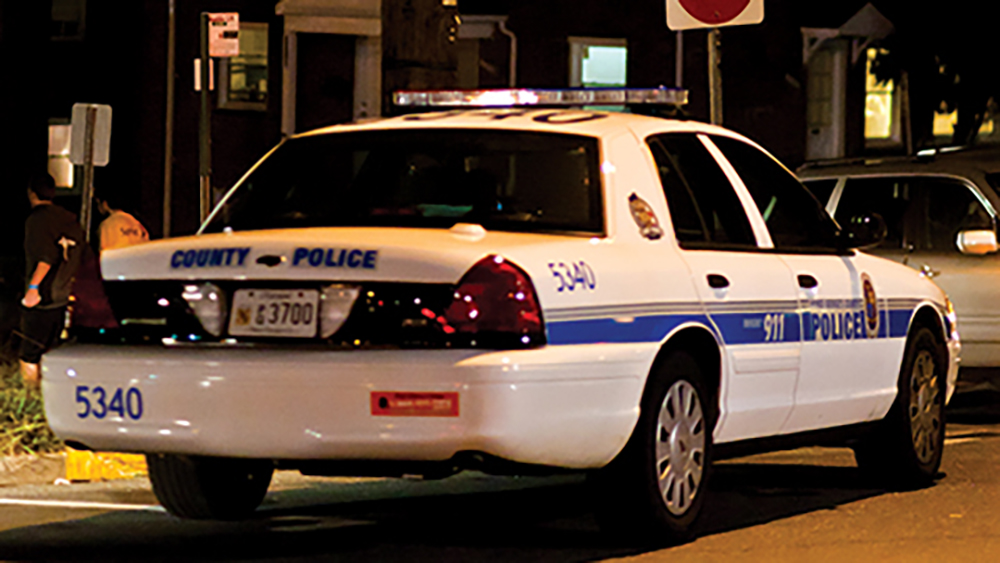Views expressed in opinion columns are the author’s own.
In October, I remember being particularly upset by how Prince George’s County Executive Angela Alsobrooks responded to the settlement reached by the family of William Green, a Black man who was shot and killed by a county police officer while handcuffed inside a police car in January 2020.
Instead of addressing the violent and corrupt history of the police or even questioning the nature and structure of policing, she reiterated her support, stating, “When we need to defend our department, we will, and when we need to make reforms, we will.”
Those reforms have come — or, at least, they’ve been strongly suggested. On Tuesday, county activists and relatives of victims of police violence demanded sweeping changes to the structure and protocol of the department via the Task Force on Reforming the Prince George’s Police Department (established by Alsobrooks). There are five main suggested reforms, the most significant ones being “Clean House,” which calls for a removal of all department leadership via a community-led process, and “Terminate and Prosecute,” which demands the firing and prosecuting officers with records of abuse in Black and brown communities.
These are the only two of the five demands that would have any true impact on the department’s ability to do harm. The Graham Report — a 265-page report about allegations of racism within the county police — made it clear that there are deep, unreformable issues within the department. The report details a pattern of racial discrimination, a culture of retaliation, unfair treatment and harsher punishments for officers of color and a lack of accountability for white officers, among other things.
With corruption this deeply entrenched in the department, a “clean house” is painfully necessary. The county police department has been under Justice Department investigation multiple times for misconduct and discrimination, and anyone still left over within department leadership should be fired expeditiously. Identifying and firing officers with histories of racialized abuse and misconduct would also be a good way to prevent even more Black people in Prince George’s County from being shot at by police.
However, I’m still extremely skeptical of the effectiveness of even these two proposals, because it feels like they are still trying to achieve reform from within a hopelessly corrupt department. First, there’s really no way to ensure that department leadership won’t just be replaced by other equally bad, veteran officers who continue to enable norms of corruption and racism. And Second, the “terminate and prosecute” demand feels retroactive, and may only respond to police violence against Black people well after it happens.
Michael Owen, the county officer who killed William Green, used force against civilians at least nine times in his 10-year career with the department, but his abuse was met with a firing only after he had already caused immense suffering. While these reforms come from positive intention, the only way to directly stop police violence and corruption is still to reduce their power by slashing department budgets, decreasing police force sizes and taking away their stashes of military-grade weapons.
The demands of local organizers should expand to include a mechanism for defunding the roughly $367 million county police budget (a 3 percent increase from 2019, by the way), and reallocating those funds to more positive things that don’t violently impact the county’s Black community, like mental health emergency specialists, COVID-19 recovery, small business stimulus and social services, to name a few.
I think community organizers have very legitimate reasons to demand defunding the PGPD. The Graham Report showed that the department has already spent so much time, effort and taxpayer money covering up its own corruption. Is it really too much to ask to take money away from an already overfunded department that uses those funds to pardon its own crimes?
All of these demands are still only suggestions to Alsobrooks’ task force. Not to mention, legislative support for these measures is unconfirmed. While I realize that those behind these demands are fighting an uphill battle, I believe it would be more effective to advocate for defunding the PGPD and reallocating those funds to specific areas of community need. I think that message, supported with examples of rampant corruption, would resonate in the state’s Blackest county. Establishing task forces and committees looks great on paper, but to address the material needs of Black people in this county, we need to take PGPD’s money.
Malcolm Ferguson is a senior English and government and politics major. He can be reached at mferguso@terpmail.umd.edu.



